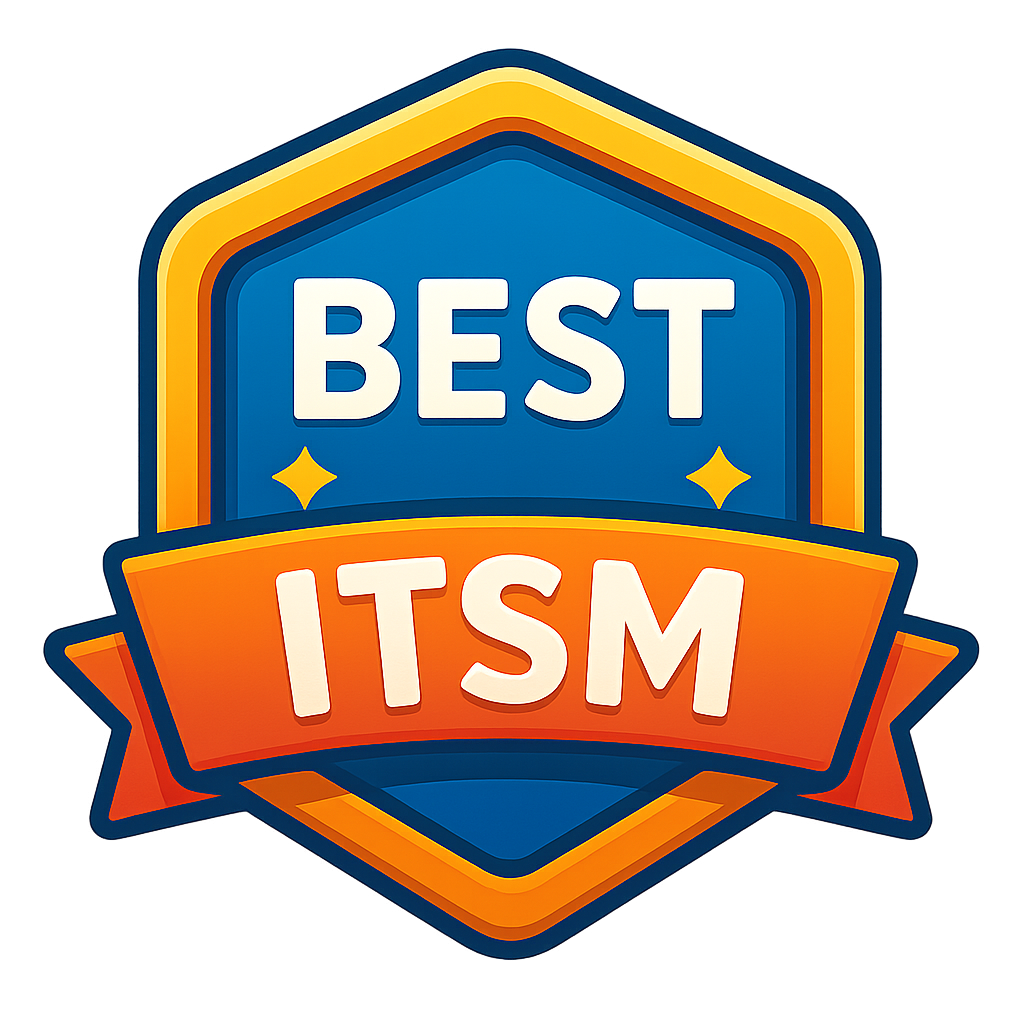Best 5 ITSM platforms in 2025.
1. ServiceNow

Overview: ServiceNow continues to be a dominant force in the ITSM market, offering a comprehensive platform that integrates IT operations, security, and customer service management. Known for its scalability and robust workflow automation, ServiceNow caters to large enterprises looking for an all-encompassing solution.
Key Features:
- AI-Powered Insights: ServiceNow’s advanced analytics provide real-time insights for proactive issue resolution.
- Scalable Workflow Automation: Extensive automation options streamline repetitive tasks, allowing IT teams to focus on complex challenges.
- Integration Capabilities: ServiceNow supports integration with other enterprise software, enabling seamless workflows across platforms.
Pros:
- Best-in-class automation capabilities
- Extensive support and third-party integration options
Cons:
- Higher price point, making it more suitable for larger enterprises
- May require customization for industry-specific needs
2. Freshservice
Overview: Freshservice, a part of the Freshworks suite, is known for its user-friendly interface and efficient ticketing system. Ideal for small to medium-sized businesses, it offers a flexible ITSM solution that’s easy to deploy and manage. Freshservice’s straightforward pricing model and ease of use make it a popular choice for teams looking to get up and running quickly.
Key Features:
- Gamified Service Desk: Freshservice uses gamification to motivate teams and improve productivity.
- Intuitive User Interface: Its simple layout and ease of use make it accessible to organizations new to ITSM tools.
- Self-Service Portal: Offers a self-service portal that empowers users to resolve simple issues independently.
Pros:
- Simple setup and deployment
- Cost-effective, especially for smaller teams
Cons:
- Limited customization options
- May lack the advanced features needed by larger enterprises
3. Mint Service Desk
Overview: Mint Service Desk stands out as one of the few ITSM platforms offering both Cloud and On-Premises deployment options, allowing organizations to retain control over data and resources. Tailored for flexibility, Mint Service Desk supports a wide range of ticketing, asset management, and client support needs, making it a valuable tool for organizations of all sizes.
Key Features:
- Hybrid Deployment Options: With Cloud and On-Premises versions, Mint provides data control flexibility, catering to businesses with strict data security requirements.
- Customizable Ticket Fields: Mint allows organizations to configure fields specific to ticket types, enhancing the efficiency of issue resolution and data organization.
- Comprehensive Asset Management: Asset tracking tools enable IT teams to manage resources effectively, from hardware lifecycle management to software license tracking.
Pros:
- Unique dual deployment model
- Highly customizable and flexible for diverse needs
Cons:
- May require some initial setup for customized ticketing fields
- Ideal for companies with established IT processes
4. Jira Service Management
Overview: Known for its origins in project management, Atlassian’s Jira Service Management brings a collaborative approach to ITSM. With strong DevOps integration, it’s well-suited for companies aiming to bridge IT and development teams to enhance product delivery and customer support.
Key Features:
- DevOps Integration: Seamlessly integrates with Jira Software, making it a top choice for organizations with strong DevOps practices.
- Incident and Change Management: Helps teams manage incidents and changes efficiently with real-time data and alerts.
- Self-Service Portal: Provides a knowledge base for self-help solutions, reducing the volume of repetitive tickets.
Pros:
- Excellent for teams using Agile and DevOps practices
- Built-in collaboration tools
Cons:
- Limited scalability for organizations outside the Atlassian ecosystem
- May require plugins for certain ITSM functionalities
5. BMC Helix ITSM
Overview: BMC Helix ITSM offers a sophisticated solution designed for large enterprises needing end-to-end IT service management. Its integration of AI and machine learning sets it apart by enabling predictive capabilities that reduce downtime and enhance operational efficiency.
Key Features:
- Predictive Service Management: AI-driven analytics predict and prevent issues before they impact users.
- Multi-Cloud Management: BMC Helix supports multi-cloud environments, helping businesses manage services across private, public, and hybrid clouds.
- Smart Incident Management: Automates incident management to reduce response times and improve user experience.
Pros:
- Ideal for complex, multi-cloud IT environments
- Advanced AI and machine learning capabilities
Cons:
- Higher cost and complexity; best suited for large organizations
- Learning curve for teams unfamiliar with complex ITSM systems
Conclusion
In 2025, the landscape of ITSM tools is more diverse than ever, with each platform offering unique advantages. ServiceNow leads in automation for large enterprises, while Freshservice provides a simplified approach for smaller teams. Mint Service Desk stands out for its hybrid deployment and customization, making it a flexible choice for organizations needing data control and tailored ticketing solutions. Jira Service Management bridges IT and DevOps, whereas BMC Helix takes a predictive approach with AI-driven insights. Selecting the right ITSM tool depends on an organization’s size, industry needs, and operational goals, with these top five solutions setting the standard for service management excellence.
